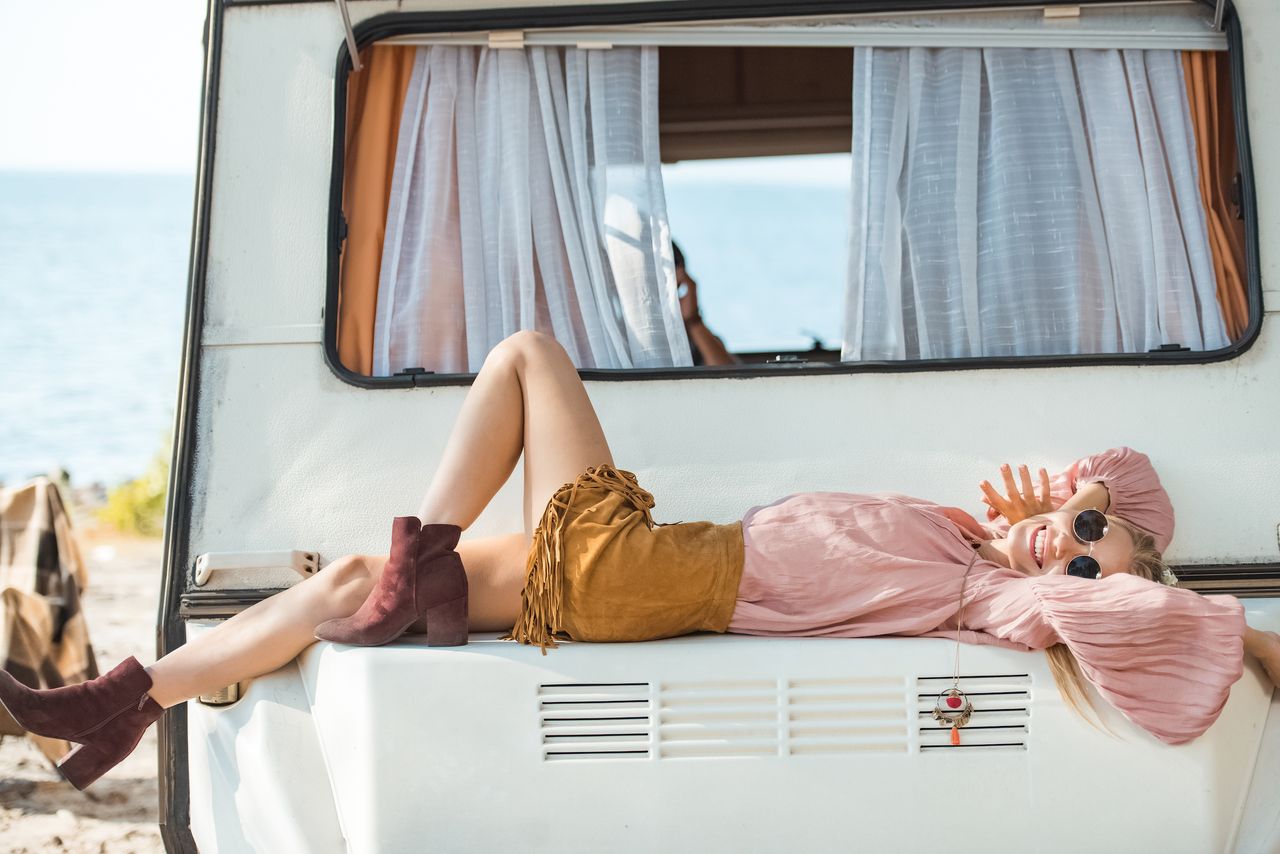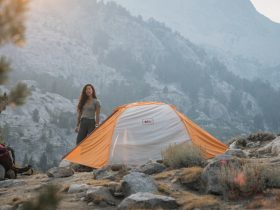With new travel restrictions this year halting trips overseas as a safety response to COVID-19, more people are looking for alternatives. One of the most popular ways to travel nowadays, albeit nothing new, is on the open road with an ultra-modern, refurbished van.
An increasing number of these ‘van lifers’, or travelers, are millennial women who have chosen to embrace this lifestyle and document their adventures through the hashtag #vanlife, which has generated more than 6+ million posts on Instagram. To help prepare for liberating journeys on the open road, we’ve compiled a few top tips and tricks from female travelers.
1. Be Selective with Campsites
When it comes to journeying the open road, campsites are the most common waypoints, if not sometimes the destination. These are also more often remote, rustic, and faraway sites that are tucked away in woodland scenery, or in a blustery field. The likelihood is that your journey will lead to a campsite.
When preparing for your travels, research and assess suitable campsites to use as waypoints in navigating the roads. It’s essential, here, to consider if the campsite pitching fees will affect your budget dramatically, as price points often vary between counties. Some campsites require membership, especially for caravan club sites. These will run privately and may require previous bookings. Lastly, consider if the campsite is seasonal and, therefore, operates according to different opening times.
If in doubt, balance out educated guesswork with due diligence. Being on the road, your instincts can be valuable, but the power of preparation shouldn’t be underestimated either. Camping on a private site will require a small budget, planning, and an understanding of best etiquette.
2. Roadmap Journeys (thoroughly)
A journey should start on a map. The horizons, from the open road, seem endless. Some travel to faraway, scenic locales just to journey the various trailheads that wander through the countryside, carefully avoiding urban life. Others, however, prefer sunrise hikes with views over low valleys, or camping lakeside on the edge of nondescript towns.
To narrow down your journey, plan backward. Start with a destination and, then, map out a journey that connects up places along the way. Jotting a journey on a physical map means that you can travel more confidently, keeping it close by. If you’re mapping out a journey on a digital map, like Google Maps, try to download it offline or prepare your satnav early on.
Tip: if you don’t have a destination yet, or your journey is an indefinite one, plan to update your map from the road. Always give yourself somewhere to go.
3. Plan for Privacy
The #vanlife represents a lifestyle for many. It’s a commitment to traveling beyond the convenience of a vacation, which are usually quick, easy trips with a clear destination (and a set timeframe). When being on the road for long periods of time, ensuring your van is kitted out appropriately should be mission-critical to your preparations.
Treat your van like it’s a home away from home or a portable living quarters. Most of the planning can seem, on the surface, rather simple. You’ll need the likes of sleeping supplies, cooking equipment, and so forth. But, often an oversight, is the value of privacy on the road. It can seem if you’re camping in a thickly wooded site like privacy isn’t something to plan for. Yet, on more open plans, shared sites, privacy is in short supply. You should plan to kit your living quarters with enough privacy supplies, such as curtains and dividers.
4. Prevent Shortages
With its smallish cabin space, a van is reserved on how much it can store. Supplies can quickly become sparse and planning regular opportunities for restocking isn’t so easy, especially if you’re traveling around remote locales and faraway, nondescript roads. Sometimes the best tip is to plan around unexpected opportunities to fill up supplies.
Without proper planning, shortages can creep up and surprise you. Short supplies can quickly thwart a journey.
5. Travel Companions
Being on the road can be a lonely experience. If you’re unaccustomed to long stretches of quiet journeying, consider taking along a travel companion. You can opt for a like-minded friend or even a dog. A travel companion can help liven the journey with sharable moments and will, generally, make the journey seem safer. A dog, as a great road companion, will enjoy the outdoors opportunities along the way, including any camping, hiking, or outdoorsy activities.
From mountaintops to winding trailheads, there’s something for us all waiting at the end of the road.












Leave a Reply